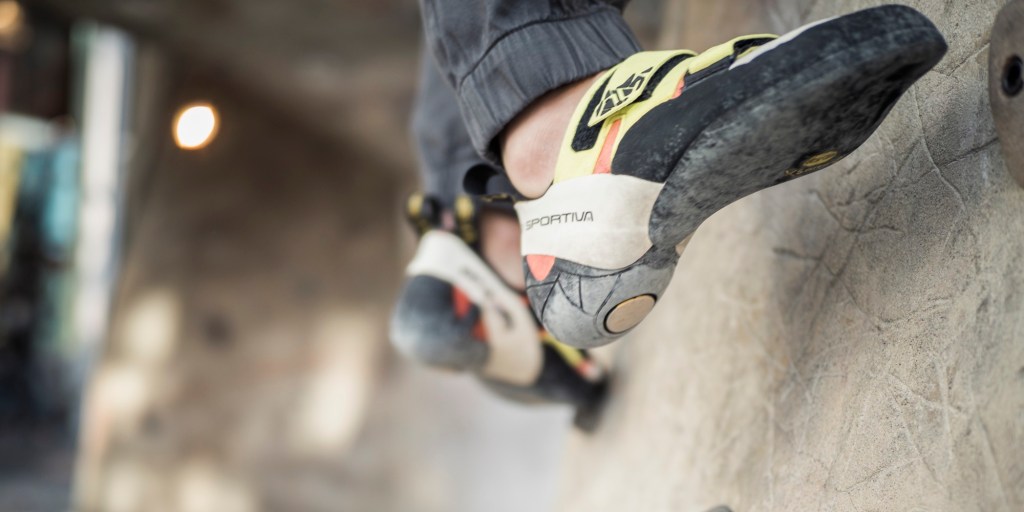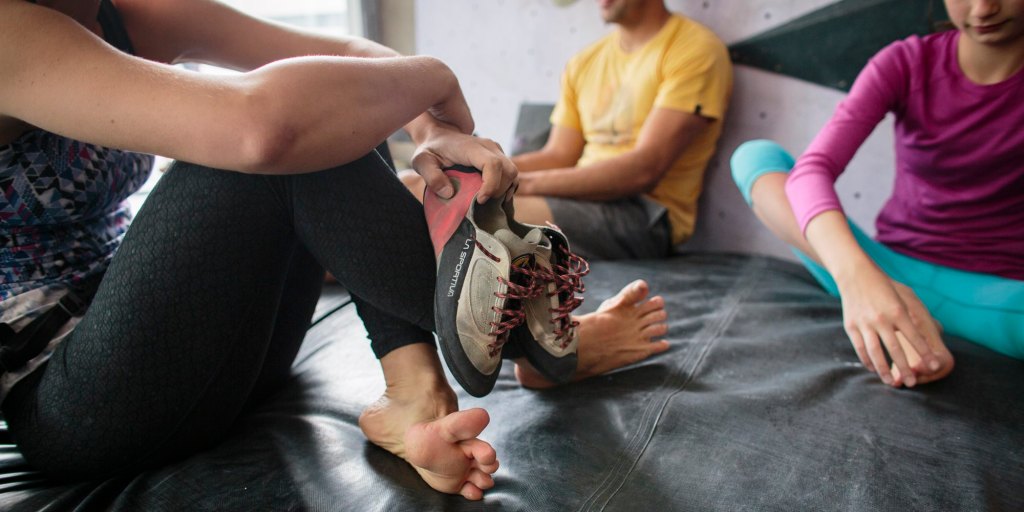Climbers everywhere are talking about Tokyo 2020, because—for the first time—climbing will be a part of the biggest stage in sports. Of course, climbing competitions have been around for decades, but it goes to show that competition is an alluring aspect of the sport. In fact, most of the best climbers in the world—including those performing outside—started out in local competitions at gyms exactly like yours. So if you’ve got the itch to challenge yourself, that’s a good place to start. Our local gyms give us the opportunity to test ourselves at fun community bouldering competitions. If you’ve noticed the new poster at your gym advertising the next competition, and you’re debating whether to register, here are a few tips to help you have the best experience possible.
How it works
For a typical bouldering competition, the routesetters craft several boulder problems of every grade and style so that all levels can compete at once. From outside this will look like an extremely busy night at the gym, but inside it’s an incredibly supportive room full of climbers who are all trying to do the five or so highest-scoring boulders that they can. You won’t be on a stage in front of everyone like in the high-level comps you see online, but your fellow competitors will be watching and cheering you on, sharing beta and signing your scorecard after successful attempts.
Registration
You don’t have to be on a team to enter a competition. Most gyms will host local competitions for their climbing team a few times a year, and oftentimes this will coincide with what’s known as a “citizen’s comp.” This less structured, all-ages comp will be broken into several categories—usually recreational, intermediate, advanced and open or elite. Read through the categories and their parameters and decide where you best fit. Competitors who “sandbag,” or choose a lower category to ensure a win, will often be bumped to the next category based on their performance, so if you’re on the fence, choosing to challenge yourself is often the better option. I’ve been in dozens of competitions that have more than 20 intermediate competitors but only one or two advanced.
Preparation
Once you’re registered and getting psyched, it’s time to prepare for the big day. Make sure you’ve packed all your normal gym items: shoes, chalk, brushes, etc. A change of clothes for post-comp and pre-awards is a good refresher, and many gyms have member parties following the comps. Bring extra water and snacks. Most comp days are higher volume than your normal session, and you’ll likely be trying hard, so don’t skimp on the food. Something substantial mid-comp will give you the energy to finish strong.

Comp Day
Get to the gym early so you can sign in and pick up your goody bag. This will also give you time to walk around the gym and check out the problems that the setters have been hard at work creating. Normally you aren’t allowed to touch the holds until the comp starts, but you can spend some time getting adjusted to the new layout. You’ll be given a scorecard that coincides with the numbered boulder problems, and you should be able to easily find which problems fit into your category. Try to find the problems you’ll want to warm up on, the moderates that you’ll use to fill your scorecard, and which of the harder problems in your category look like fun and might fit you best.
Competing
Just before the competition begins, someone will go over the rules. Pay close attention! You’ll likely be asked to keep track of each attempt, and upon finishing a boulder, you will need to get witness signatures. The rules for what constitutes starting and finishing a boulder may also be a little different than you’re used to. Ask questions if you don’t quite understand the rules.
When climbing officially starts, take your time and warm up slowly. Gradually increase the difficulty, and before you begin trying anything very difficult, make sure you’ve got signatures for at least the number of problems you’ll be scored on (usually the top five). You’d be surprised how many competitors choose not to score the moderates, and then don’t end up finishing five harder problems.
Once you’re feeling warmed up and ready to try a little harder, spend some time watching other climbers on the more difficult problems you’d like to attempt. You’ll be able to see the beta that works and doesn’t, and that will give you an advantage on your first attempt—which ultimately counts for more points. Try not to get stuck on trying only one problem if there are still a few lower-point problems you haven’t done.

At this point you’ll be at the halfway point or a little further. You’ve filled your scorecard, so there’s no rush. A brief rest, snack and water will get you back in the game far more fresh than if you just push through and keep climbing. Take a look at the points you’ve earned and decide if your strategy should be to inch the scores up on lower level climbs or go for a bigger fish. If you’re feeling strong and have plenty of energy, and want to finish up that high-point problem, then make each attempt count. Watch the other competitors on the boulder, get plenty of rest between attempts and try hard.
When you’ve finished, don’t forget to turn in your scorecard!
Post Comp
Once the climbing has ended, there will be some time before scores are tallied and awards are presented. Change your clothes and relax. Go out with your fellow competitors for food, or enjoy the party at the gym. Before you discover where you’ve placed, decide how you feel about your performance. Are you happy with your strategy and how you climbed? Did you give the effort you intended? Use these subjective answers to help you in the next comp, no matter how you place against the competition.
Competitions are a fantastic way to experience what makes climbing such a unique and special sport—people of several ability levels and ages competing simultaneously. It’s not uncommon to work on a boulder with and cheer on someone half or twice your age. In fact, the word competition itself somewhat belies the supportive nature of citizen’s comps. In every one of the hundreds I’ve attended, climbers are constantly sharing beta, brushing each other’s holds, spotting and cheering on the very same people they’re competing against.
